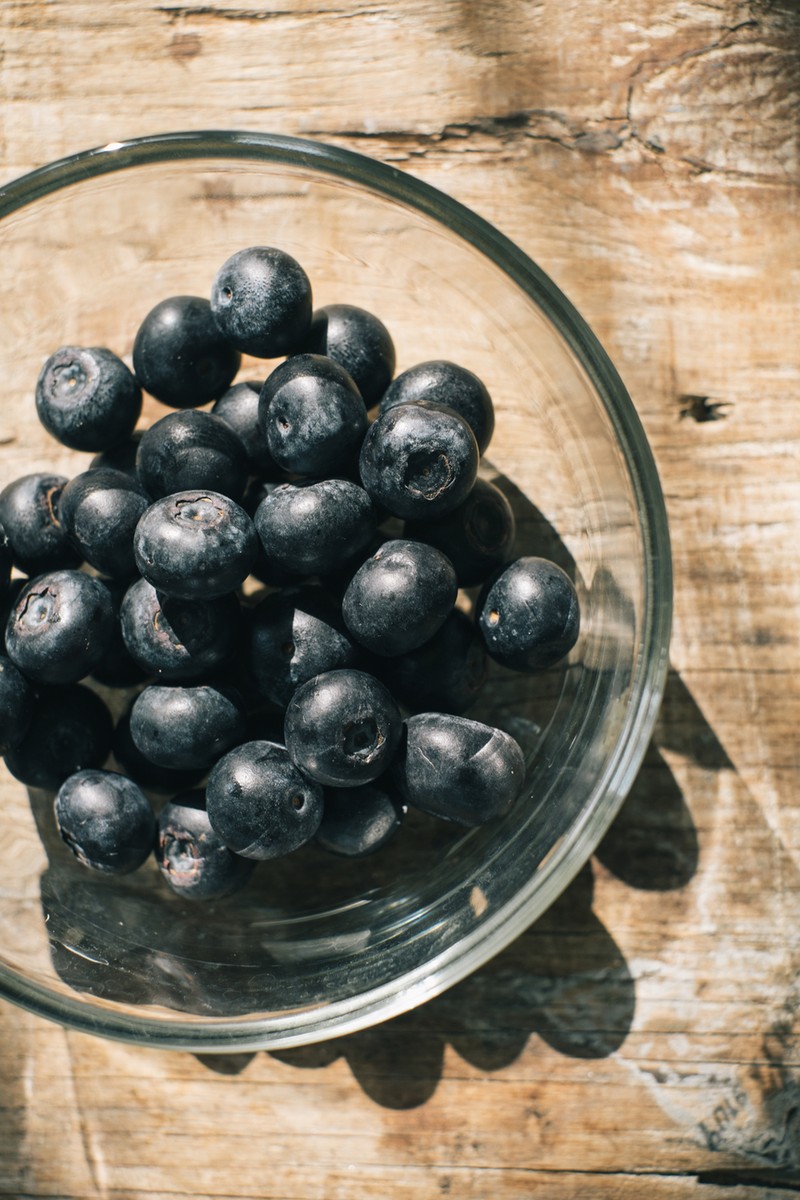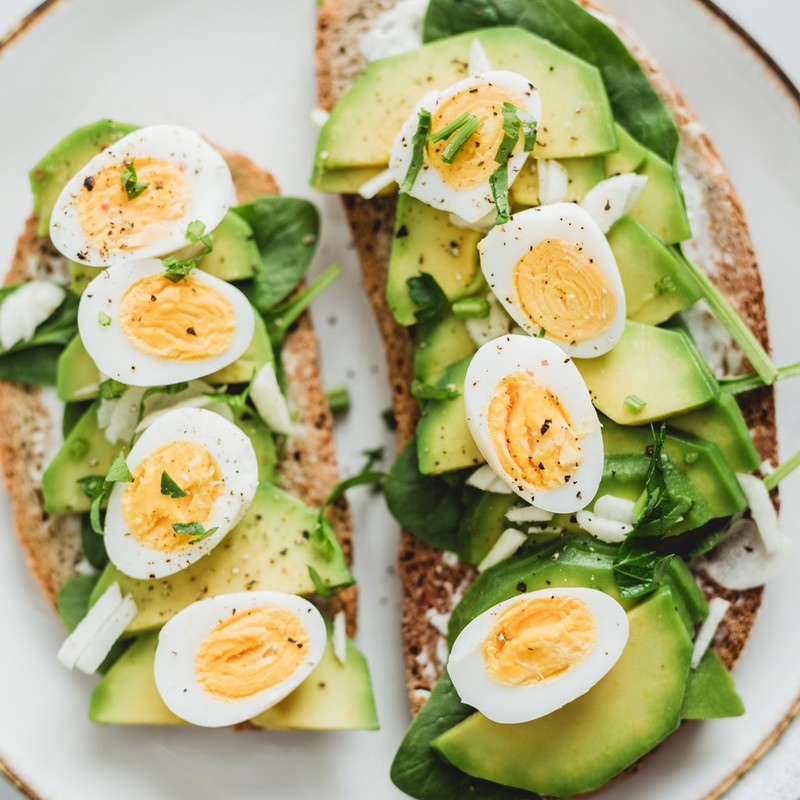How To Boost Your Mood With Food
Nourish Your Gut-Brain Axis
“There is a network of around 100 million neurons lining our gut. It’s so extensive many scientists now refer to our gut as our ‘second brain’. This multitude of neurons produces more serotonin (our happy hormone) than our actual brain. The chemical messages that pass between the gut and the brain are hugely influenced by our gut microbiome – the bacteria, viruses and fungi that live in the gut – so how we care for our gut really influences how we think and feel. This connection is known as the gut-brain axis. In the last two decades, there’s been a huge rise in IBS, bloating, constipation, gas, diarrhoea and heartburn, and this goes hand in hand with the world becoming more toxic, with stress levels on the rise. Conditions like depression and anxiety are often accompanied by digestive symptoms, so nourishing your gut is a win-win for elevated mood.” – Dr Simoné Laubscher, founder of Rejuv Wellness & formulator at WelleCo
Feed Your Microbiome
“Our gut microbes feed on fibre. Every meal you eat should contain a range of fibre-rich foods. Onions, garlic, leeks, rocket, broccoli and cabbage are especially good gut foods, but also include a small amount of fruit daily (especially berries and kiwi), a range of raw nuts and seeds, and lots of different beans and lentils. Pale green bananas, as well as cooked then cooled potatoes, provide a good source of resistant starch – a particularly potent fuel for gut microbes. Also incorporate a small amount of fermented foods daily – think live natural yoghurt, kefir, kombucha, sauerkraut and live apple cider vinegar. When it comes to fermented food, variety is key and there’s no need to go overboard – think little amounts regularly.” – Jane Mostowfi, nutritional therapist
Start The Day With Eggs
“Rich in both protein and healthy fats, eggs are great for satiating hunger pangs and reducing cravings. They’re also a good source of brain, cognition and mood-boosting vitamin D. Although some people fear eggs for their cholesterol, cholesterol is actually a key component of the brain. In fact, our brain houses over 20% of our total cholesterol, despite only accounting for 2% of our body weight. Cholesterol also supports the brain’s mood-boosting neurotransmitters such as serotonin and dopamine. If you’re concerned about your cholesterol, speak to a nutritionist – but when it comes to mood, you’re better off reducing your sugar and glycaemic index than being concerned about eggs.” – Lara Hughes, nutritionist & naturopathic practitioner
Leave 3 Hours Between Meals
“Giving the digestive tract the chance to rest in between meals without snacking is a simple way to support the gut-brain axis. Leaving at least three hours between meals allows your digestive system to kick into gear and prevent debris from accumulating and stagnating. Aim to leave 12 hours between dinner and breakfast, and practise working your way up to 14-16 hours a couple of days a week.” – Jane
Swap Coffee For Green Tea
“Although coffee has many benefits, it’s important to understand high amounts of caffeine raises our stress hormone cortisol, mimicking the impact of chronic stress. It also sensitises our sympathetic nervous system – our stress response which enables us to mobilise for an attack – meaning we have a lower threshold to tolerate stressors, making us more prone to stress. When we drink caffeine-containing beverages, we feel on top of the world (for a short time) but the body perceives this as an outside ‘attack’ – you may experience this as palpitations and anxiety, poor digestion, bloating and diarrhoea. When you’re under the cosh, swap a cup of coffee for green tea, which contains calming L-theanine and focus-promoting neurotransmitters. Research has found two cups of green tea daily can lower cortisol levels and improve relaxation.” – Lara

Keep Blood Sugar Balanced
“When we eat food that supports the gut, the microbiome rewards us by producing compounds that heal and balance the body and brain. When we eat inflammatory foods like sugar, this can trigger inflammation and dysregulated blood glucose levels, both of which affect mood, energy and motivation levels. To keep blood sugar regulated, start your day with a protein-rich breakfast by 10am, followed by two decent meals with a good source of protein, a complex carb, 50% ‘above ground’ vegetables (think courgettes, kale, broccoli, cauliflower, peppers and cucumber) and a thumb-sized portion of healthy fats. Avoid snacking in between meals and move for 15 minutes after every meal to support insulin sensitivity (i.e. get the glucose into your cells). It can also help to eat food in the right order: eat vegetables first, followed by protein and fat, then carbs, which can make a significant difference when it comes to keeping glucose levels balanced.” – Jane
Eat More Plants
“Eating a rainbow of plant foods is one of the best ways to support your gut and mental health. The American Gut Project, which analysed the gut microbes of over 10,000 people, concluded that participants eating 30+ different plant foods a week had a more diverse microbiome than those eating a less diverse diet (10 or fewer). Diversity of gut bacteria is associated with a healthy gut microbiome, which is crucial for optimal gut-brain communication and serotonin production.” – Emily Woollins, nutritional therapist
Don’t Forget About Oily Fish
“Omega-3 fatty acids – found in oily fish like salmon, mackerel, anchovies, sardines and herring, as well as nuts, seeds and cold-pressed olive oil – are crucial for brain development and function. Consumption of omega-3 is associated with improved mood and reduced symptoms of anxiety, depression, ADHD and autism. Aim to eat at least three fillets of fatty fish weekly, or one tablespoon of flax or chia seeds daily. To further boost your levels, you can take a supplement – look to one that contains at least 1,000mg of EPA and DHA, such as Biogena’s Omega-3 Forte.” – Lara
Cut Back On Processed Food
“A diet high in sugar, salt, saturated fat and highly processed foods can impact mental health. Research suggests a poor diet can decrease the volume of the brain’s hippocampus and damage neurons, leading to low mood, memory issues and increased risk of depression. Be wary of seemingly healthy ‘free from’ foods, such as those labelled ‘gluten free’. They often contain highly processed, refined flours, as well as added salt and sugar to improve flavour and texture. Also be wary of shop-bought snacks like cereal bars. These are often high in sugar, dried fruit and syrups, which will provide a quick energy boost followed by a crash, resulting in low mood and cravings.” – Emily
Have Berries Daily
“Berries are a fantastic food for supporting mood and brain health. Berries contain a bioactive plant compound called polyphenols, which have the potential to reduce inflammation and oxidative stress. Oxidative stress is linked to accelerated ageing and the onset of neurodegenerative diseases such as Alzheimer’s. Regular consumption of anthocyanins – the class of polyphenols that give blueberries their dark pigment – has been linked to a reduced risk of depression. Aim to eat a portion of berries (around 80g) most days.” – Emily
Prioritise Fat & Protein
“Snacking can be a good way to reduce ‘hanger’ and keep your mood stable, but not all snacks are created equal. The rule of thumb is to combine a lean protein source with healthy fats and complex (i.e. fibre-rich and slow-digesting) carbs every time you eat. Nut butters provide stable energy to keep you going and trigger your gut receptors to foster a feeling of fullness to minimise further snacking. They also contain a plethora of essential fatty acids and omegas to support cognition. Pair a tablespoon of nut butter with a sliced apple, oatcakes or some natural yoghurt. Cottage cheese is also a great snack – it's rich in slow-digesting casein, a type of protein that takes longer to breakdown and absorb, keeping energy and mood stable. Try stirring it through guacamole for a protein boost.” – Lara
Snack On Nuts
“A handful of nuts is a great way to support your mood. Walnuts contain brain-protective nutrients like vitamin E, folate, antioxidants and healthy fats to boost brain function, cognition and mood. If you eat one nut, make it Brazil nuts – three a day will provide you with your daily recommended dose of selenium, low levels of which have been linked to depression and mood disorders.” – Simoné
Treat Yourself To Dark Chocolate
“Dark chocolate’s effect on human mood is no secret – it triggers the release of pleasurable endorphins and dopamine. Dark chocolate also contains polyphenols, a type of antioxidant that has been linked to positively influencing mood. Choose Fairtrade, organic dark chocolate as part of a balanced diet. If you’re prone to getting ‘hangry’, go for dark chocolate with added nuts, especially walnuts and Brazil nuts, which will help to balance blood sugar levels. Walnuts also have many brain-protective compounds, such as vitamin E, folate, antioxidant polyphenols and good essential fats, which are proven to boost brain function, cognition and mood. I think they also look like a brain – and there are no coincidences in nature.” – Simoné
Avoid Fad Diets
“It’s important to remember there’s no one-size-fits-all approach for the perfect diet, but research has shown diets that restrict key macros, like the low-carb ketogenic diet, may actually increase conditions like anxiety. While lowering carbs may improve focus for some, very low-carb diets can have negative impacts on mood, energy, attention and cognition, especially in the initial stages. On the other hand, research suggests the Mediterranean diet can improve symptoms in existing depression and anxiety, and enhance mental wellbeing.” – Lara
Support With Supplements
“Saffron is an incredible way to support mental health. Numerous studies have found saffron to have anti-depressive effects – it also reduces anxiety and supports optimal mental health. Look for a supplement that contains 30mg of saffron. My go-to supplement is MoodFx by Biomedica – it contains 30mg of saffron as well as helpful strains of bacteria to support good mood.” – Farzanah Nasser, nutritional therapist
For more information & healthy eating inspiration, head to WelleCo.co.uk, TherapeuticKitchen.co.uk, DigestAndWell.co.uk, FarzanahNasser.com & Wholistic-Health.co.uk
DISCLAIMER: Features published by SheerLuxe are not intended to treat, diagnose, cure or prevent any disease. Always seek the advice of your GP or another qualified healthcare provider for any questions you have regarding a medical condition, and before undertaking any diet, exercise or other health-related programme.
DISCLAIMER: We endeavour to always credit the correct original source of every image we use. If you think a credit may be incorrect, please contact us at [email protected].


